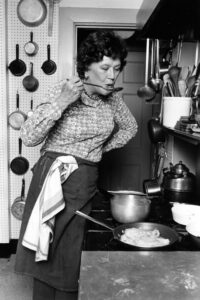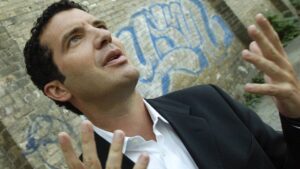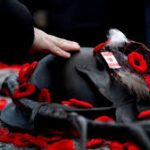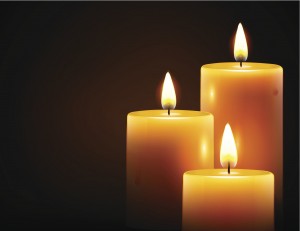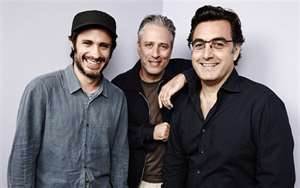[17-minute read]
[This is a slightly different version of a letter I have been stuffing into coaches’ Inboxes. It seems that some are actually reading it, good glory in the mornin’!]
MARCH MADNESS of my very own, 2025
(Being an OPEN LETTER to Canada’s (Young) Hardwood Whistle-Blowers)
Dear coaches and basketball dreamers,
(And especially *you*, young hoopers, trying to make your mark on this game we love so crazily and so much):
Hear me out, folks. This is not a rant. But its heart is in making basketball a better place to work and play and live in. (This will take you 17 minutes or so. You’ve got this!)
I’m the old guy waaaay over there in the baggy sweats, still blowing his whistle and dreaming his dream, still wondering if we can make This Thing We Do better for the next generations of hoop-crazy kids. My view: as with many other Big Important Deals going on in the world, the biggest problems we face all have to do with not getting our stuff together.
The basketball community – in Ottawa, where I live, and maybe where you are, too – is like a team whose players all have different ideas about how to win. We leaders/coaches don’t play together. We don’t play smart. (We do play hard, to finish the old formula advanced by Dean Smith at North Carolina; Ontarians, Canadians, are putting in the work, don’t get me wrong.) As a result, we don’t come near achieving, certainly in my city, what the sum of our separate talents might suggest we should.
We’re not united. Greater unity is the solution to nearly every problem. Zoom all the way out to climate change, the renewed scourge of war, or infighting in your favourite local or national legislature: only long-view collaboration can overcome them. Can basketball development be much different?
I get it, this is sport; this *is* competitive. But to too great an extent, the basketball community doesn’t act as if we have shared interests, as if we are all in the same boat (we ARE) of trying to realize a double vision: a) to create maximum opportunity for masses of kids to enjoy (and stick with) this game, and b) to encourage excellence at all levels, especially for the (relatively) few who are ready for the push. Instead, we coaches go our own ways. Instead of competing mainly on the court, where it best belongs, too often we are going our own stubborn and selfish ways, poking away at each other, undermining each other’s efforts, often without intending to. We’re guarding our yard, you might say (or growing our brand), without seeing beyond our own little patch of real estate.
As always, in any community (or any family), the cost of disunity is borne by the kids. For the truly talented (or truly privileged, or both) among our players, this might not be a big problem; if their ambition is to play at various “next levels”, their athletic gifts and other resources usually allow them to succeed in the basketball economy. The worst effects are felt, unfortunately, by the greatest number of young players.
[I’ve coached more high school than anything else, but have run numerous house leagues and founded a regional basketball club, have coached in elite development programs in Ontario and with a top-level club in Ottawa. I will probably end my decades of coaching in a high school program where I have been welcomed and have a fine young coach to work with. That’s where I’m coming from.]
So here’s what I see.
***
High Schools, Prep Schools and Clubs. In Canada, hockey, soccer and baseball have traditionally been club-based sports, just as in Europe, Asia and most of the rest of the world. Football and basketball have tended to be school-based, following the globally unusual American model. (“Education through school sport” is the Ontario Federation of School Athletic Associations (OFSAA) motto. I still maintain my stock!) Bias alert: my main career was as an English teacher; I love the intersection of sport and education; John Wooden is my coaching icon.
Of course, school-based sport has its challenges, especially in the U.S. where it is practiced at its best and most extreme: jocks getting an educational “free pass”; frequent corruption where schools rich in facilities and other resources get richer while the poor schools get poorer. (Hey, can you say “NCAA transfer portal”?) However, this American model has produced by far the greatest proportion of the best amateur and professional players in our sport. The Amateur Athletic Union (A.A.U.) system in the States developed as an extra way in which motivated athletes could enrich their development and playing experience, particularly if their schools did not have a solid off-season development program. Clubs in Canada have filled a similar void.
And between such school and club programs falls the modern “prep school”. Originally, every secondary school was considered a prep school, preparing students to succeed in post-secondary education. (Americans still refer to high school sport in general as the “prep” level.) Specialized preparatory schools, usually private ones, often offering an extra high-school year, evolved to help get students prepared academically for entrance into high-ranking universities with lofty admission standards. It’s only in the last few decades that this concept was extended to preparing “student-athletes” – yeah, I’ll say it, far more emphasis on the athlete part of the equation! – to get athletic scholarships. Pay the prep school fees, so the current thinking goes, wear cool gear, attend shoe company tournaments and you’ll be readier for and better known to the college sports powerhouses. (Pardon the history lesson.)
Fine.
In Canadian basketball, it seems to me, we’re following the American model, sometimes to our benefit, but for better and for worse. For most of my basketball life, a player needed to take care of academics if he/she wanted to play after high school, whether that was in a Canadian college or university or (for the very few) in the NCAA. That squashed the ambition, for example, of my super-talented high school teammate, since he didn’t care much for school. But it also kept a great number of high school football, basketball and other players in school, and at least somewhat motivated to succeed there. And playing for your school, if that community cares about what you do, is one of the best things sport has to offer. More on this later.
The “for worse” part is this: instead of emphasizing the value of school-based athletics, as the Americans have done for over a century, we are (I think pretty blindly) copying the AAU mentality, as well as adopting a prep-school-is-the-only-school approach. Both of these can seem to benefit the top, let’s say, 1 or 2% of players, but they also can actively interfere with the development and enjoyment of a majority of those who play our game seriously.
CONFLICT. It wasn’t that long ago that club and high school basketball had quite distinct seasons. When I was coaching club teams in Ottawa in the 2010s, these select players would finish their high school seasons (perhaps with some extra weekend training with their clubs) before starting a club season that would run from March to May and beyond. My current high school teams don’t have a lot of club players; the ones we do have, though, are stretched thin. Their club coaches are insisting on what amounts to a nine-months-or-more commitment; meanwhile, we’re trying to build a team culture, a shared commitment and feeling, for a four-month season, at most. (I’ll leave aside the growing fact of kids’ inability to play multiple sports, which we know has huge advantages for young athletes.) Our club kids are pulled in opposite directions, and are incentivized to pace themselves at my practice because they’re going to his practice that evening. Or to skip one or the other. They’re more prone to overuse injuries. They’re more likely to get stale. (“Coach, basketball is starting to feel like a job,” one of my boys confessed this past season.)
Yes. We’ve all heard it: “High school ball is dying.” Really? Isn’t that a self-fulfilling prophecy? (It’s alive and kicking hard at our school, and we’re not alone. At the risk of being obvious, it’s still — to an almost absurd degree — a Pretty Big Deal in the Excited States of America!) So many kids are enticed to pay big money – and to sacrifice the real comradeship that comes with studying and playing and graduating at your own high school with your buddies – to pursue the prep school dream, which is an illusion for so many; I’ve seen the love for the game, for too many boys, dampened by their eventual, inevitable disillusionment. Even the ones who “succeed” there are often role players on a thrown-together “all-star team” where one or two kids get all the reps. I can’t help thinking of specific case histories of players I’ve coached or trained, who would have been much better off leading their own high school (or local club) teams, and developing as complete players rather than being slotted as under-sized forwards, or strictly as rim-runners, or as corner-three specialists.
[HOCKEY SIDEBAR. Canadian hockey learned this the hard way, probably still is. It took forever for our hockey leaders to acknowledge that the Soviets, and the Europeans in general, were producing more skilled hockey players with their emphasis on puck-handling, more creative and flowing movement, and especially on having a 3:1 or 4:1 ratio of practices to games. Elite Canadian youth teams, meanwhile, tended for decades toward the opposite ratio, played sixty- and eighty-game seasons, asked their players to fire the puck into corners and then fight to get it back, and began losing international competitions they had once dominated. Every Russian or Swedish forward, it seemed, could out-skate and out-dangle our guys and roof backhands over the goaltender. Eventually, we learned. The McDavids and McKinnons and Bedards of modern Canadian hockey didn’t learn those exquisite puck skills playing dump-and-chase, game after game after game. They had quality practices with huge numbers of puck-touches, and enormous numbers of skill reps. Okay, back to basketball!]
I agree: exceptional ballplayers (think Cooper Flagg, leaving Maine in search of competition) may benefit from playing with and against other gifted athletes. (Hmm. But Larry Bird and LeBron James, Michael and Steph, Steve Nash, Caitlin Clark, all played for their hometown high schools, and benefitted from the responsibility-for-winning that they carried. Just saying.) At our place, we tell truly hungry kids that we’ll recommend they leave our high school program if we can no longer give them what they need to continue improving.
But as high school coaches, we have huge advantages to offer our players. At our place, we can (and do) provide gym access, nearly year-round, before school. And of course, we have the standard three hours (or so) that high schools have after school for their teams, zero-cost gym availability that gives us basketball coaches at least two practice slots available every weekday (more if the secondary gym is available, which it often is); it’s everything we need. I was constantly frustrated, as a club coach, by the cost, the scarcity and the scattered locations of our practices.
The AAU Curse. Speaking of skill development, I watched that rock-fight in the NCAA second-round game, no. 2 St. John’s under Pitino and Calipari’s late-developing Arkansas team. This isn’t breaking news, but it seemed pretty obvious: here were superb athletes, assembled by two master recruiters, and the intensity was ferocious. These young men have each played many hundreds of games, some important, but many meaningless. (The 5th glorified pick-up game of a weekend on a secondary court against another area all-star team? Come on.) Yes, their ball pursuit was relentless, and they competed. But they couldn’t shoot. Defensive fundamentals were rough. I didn’t see a single great pass. And the offences they ran, under these two Coaching Giants, were based on brute force and one-on-one, high pick’n’rolls where the “roll” man was ignored, and very little sophistication. (Kinda like Canadian dump-and-chase hockey in the ‘70s and ‘80s.) In other words? I would bet my house, were I a gambling man, that most of these powerful athletes, on the whole, had played at least four times as many games in their lives as they had had quality practice sessions. It’s an old story. It’s one of the reasons I coach high school ball instead of club and so-called “AAU teams”. Skill development.
***
“So, Coach Jay, what are you saying, exactly?”
What can we do? How can we adopt a more united vision of what coaches, schools, clubs and trainers can accomplish for our players together – in our city, or pretty much anywhere? And hey: why should you WANT to?
I have some thoughts.
Basketball is a team game. Let’s work together. I was at a local USport game, and got talking to a young guy that (maybe?) I’d coached against in the National Capital high school league. He went to uni in Boston, got into coaching there, and had returned to his home town. He was keen, excited. “Yeah, I want to start up a training program and make my name here.” DON’T DO IT, I surprised him by saying. We’re not short of young guys marketing themselves as personal trainers, or starting their own one-man coaching bands. But we *do* have well-established clubs in Ottawa that need help, clubs with infrastructure and house leagues, resources and referee-development and established “home gyms”. These are fine places for young coaches to plug in their talent and enthusiasm. And hey, at my school we have two excellent coaches in need of assistants, and all the gym time in the world, and no need to squeeze kids for money! In other words, I suggested, be a team player, and contribute to something that Already Exists, instead of re-inventing the wheel and having to poach players from existing organizations. (It’s a disease.) Ottawa does NOT need more clubs and Basketball Dream Factories. The traditional clubs, across the city, sometimes don’t play nicely with each other, but they are sustainable and solid, offer real resources, and could use your energy and talent.
So yeah, young fellas, be team players! Build your skills and experience within a structure that offers opportunity, perspective and help.
ALSO. “All I’m askin’ is for a little respect (Just a little bit)…” In Ottawa, the dog-eat-dog pursuit of scarce (player) resources means that club tryouts for a primarily spring/summer season occur in August and September of the previous year. That’s a LOOOONG club “season” (more like three seasons, all-season!). When I was coaching both high school and in an elite club program, I made a clear distinction between phases of our club program’s development. Once the team was chosen, we tried to get one weekend skills practice per week, from October through February, so that my 14 athletes from 13 schools could dedicate themselves to their high school programs. We didn’t install team sets and terminology; most of them were getting enough of that in their schools, where each guy was a leader. And then, come Madness time, and right through to early summer, we ramped up as a club team, playing in our various tournaments and leagues.
It’s still a good model. But the weaponized pursuit of players has meant that because of the endless club season, club coaches not only don’t or can’t coach high school, they are actively interfering with the traditional high school season with competitions and practices through the winter.
(A brief road trip down Highways 416 and 401: High school tournaments in Kingston, a smaller city producing fine players, and club and high school teams, have been eye-opening for our coaching staff. Years ago, they united several clubs into one, and the high-competition teams from U15 up don’t do much during high school season; in fact, many of their best school coaches are Kingston Impact coaches as well. The Queen’s University program seems to support this process. Kingston looks so good from where I sit. Maybe you have similar examples where you are.)
This kind of mutual respect between existing club and high school programs would have huge benefits. Clubs that, increasingly, disregard the high school season are counter-productive. The result is burned-out players (and families), the dilution of high school ball (quite obvious in Ottawa and elsewhere, sadly), to say nothing of 12- and 13-year-olds who can’t even imagine trying another fun sport, even if it was primarily as cross-training for hoops. From a 30,000-foot view, there are no obvious advantages, whether for individual players or the basketball eco-system as a whole. I’d argue that club ball would actually benefit from a shorter, more focussed season, just as the NBA surely would.
“Sometimes when everybody else want to zig, you maybe oughta ZAG.”
So. Yes! I AM going to finish with an unpopular suggestion. We need more young basketball-lovers to ZAG in their approach getting involved in the game. What does this mean?
Consider COACHING HIGH SCHOOL BALL. (In some cases, this could include “prep schools”, which can be very good overall experiences. Too often, though, they can also be exploitative, badly run money-and-attention-grabs that seek to attract and market talent, but don’t develop it as well as they could.)
You may find yourself in a school, maybe even the place you graduated from, where recent tradition doesn’t seem all that, y’know, competitive. But that can change. Schools are meant to foster enthusiasm, learning, and EXCELLENCE, and athletic programs can benefit from that basic “education through school sports” philosophy, if you’re willing to work at it.
The advantages? Holy cow! They can be awesome.
The High School ADVANTAGE. Academics automatically matter, and you can use your coaching as motivation for your players to be real students. Player development matters, because you can’t just pluck and choose your talent from wherever; you will be required to do what all-star “teams” can too easily neglect – skill development. Team feeling, family feeling matters, because your players can be together through four years of shared experience, fun, trials, wins and losses and ultimately their graduation alongside their friends. Affordability and gym access MATTER, since you’ll no longer be scrambling for expensive evening rentals but will instead have all the hours you need – and heck, you might even be able to spend more evenings at home. (Or continuing to play yourself!) The existing infrastructure matters; you’ll still have to schedule tournaments and exhibitions, of course, but establishing your practice itinerary will be a breeze compared to coaching for a club, and there is a league and playoff structure already in place. (In Ottawa, it’s way too brief and under-promoted, and I know it’s much better in other jurisdictions. But the more there are dedicated coaches in our schools, the easier such problems will be to solve.) Example matters, and when have the youth had a greater need for a big brother or sister to look up to? (Especially those coming from minority backgrounds.) School spirit matters, and when you’re doing something exceptional, it can begin to galvanize the whole school community; our boys have had the experience of playing big games in our gym with a genuine home-court advantage – big and loud audiences of their friends, school-mates and (gasp!) even their teachers! Club coaching often means you’ll have a higher calibre of talent overall, and these programs certainly has their place. (In the high school off-season, that is!) But the games aren’t as meaningful, the practices aren’t as frequent, and it’s only a few parents who generally get to watch.
Think about this. Why is the NCAA Women’s and Men’s “March Madness” tournaments so compelling? Where does the interest, the hype, the tradition come from? Largely, they come from school communities, fan bases that really care about their alma mater, their teams, and from student bodies who find a reason to get excited over something together and graduates (plus band-wagon jumpers, sure!) who remember and re-kindle their own school experience. You wouldn’t see anything even resembling that at an AAU-style or club tournament.
High school sport, at its best, is a BLAST! For most players, it’s the highest and most personally meaningful level they will reach.
And here’s the other thing: coaching high school ball won’t prevent you from doing personal training, or catching on with a club if that’s your thing. I would argue it gets you readier to do a great job in those other coaching environments.
***
Okay, faithful readers and friends-in-sport. You’ve been generous with your time, and patient with my rambling and All These Suggestions you didn’t ask for. I appreciate your reading ALL THE WAY DOWN TO HERE. I’ll finish with the obvious: Like any team, like every sort of collaboration, the more the leaders in our basketball community work and PLAY TOGETHER, the greater our results will be for the ones that really matter: little house-league ankle-biters, high school strivers, next-level talents, and even the adult recreationists who still feel good about our game. The PLAYERS! What’s best for (ALL OF) them is our shared purpose. Thanks for listening!
And hey, if you’re in Ottawa, take an old coach to lunch!!
Sincere and hair-on-fire regards,
“Coach Jay”


